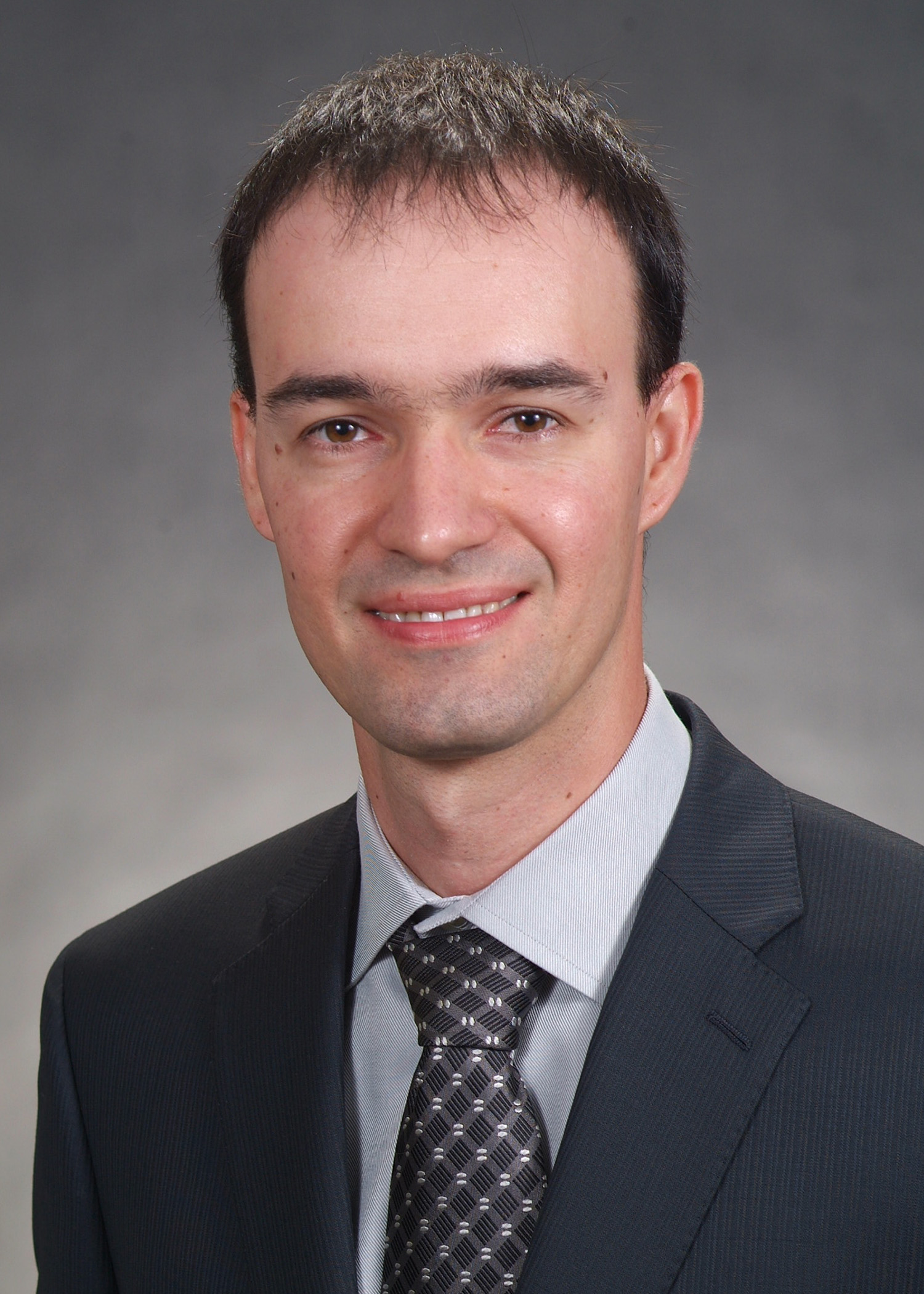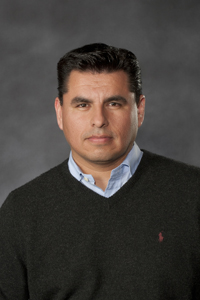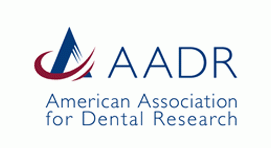Supported by the Academy of Osseointegration
Deadline: December 11, 2015.
Online submission site is now open! Click here to apply.
The Academy of Osseointegration Innovation in Implant Sciences Award is jointly sponsored by the International Association of Dental Research (IADR) and the Academy of Osseointegration (AO), with funding provided exclusively by the AO.
The IADR mission is to advance research and increase knowledge for the improvement of oral health worldwide. It does so through its Divisions and Sections as well as in partnership with international dental associations, industry, health agencies, and scientific and educational professional organizations. The Academy of Osseointegration is an international multi-disciplinary dental implant organization with a mission that exists to bring together individuals of different backgrounds in order to share experience and knowledge regarding dental implants. Academy members share the common goal of moving the field of osseointegrated implants forward through clinical and evidence-based research and education. The mission of the AO is to advance oral health and well being by disseminating state-of-the-art clinical and scientific knowledge of implant dentistry and tissue engineering.
As a leader in dental implant education and translation of clinical applications of dental implant therapies, the Academy of Osseointegration recognizes the need for investigators to produce implant research that can be applied in clinical practice and be used to maintain and improve oral health and quality of life.
The Award is intended to help investigators pursue innovative and novel research in oral care that involves, but is not limited to, dental implant therapy.
One competitive award of up to $75,000 will be provided to recipients.
The Award will be provided in the form of an unrestricted research grant which carries no obligation to the recipient’s organization for licensure, patenting, or transfer of confidential information. No indirect or other costs will be provided and a recipient can only receive this Award once.
For the purposes of this Award Program, applications must relate to some phase of implant therapy (diagnosis, device or procedure) that advances scientific knowledge of implant dentistry or tissue engineering.
- The principal investigator listed in the application must be a current member of, or at the time of submission have made bona fide application to, the IADR and the Academy of Osseointegration.
- The most important criterion involves the quality and innovative nature of the proposed research.
- A letter of support from the principal investigator’s (PI’s) institution (if affiliated with an academic or research organization) is required and should describe the nature of the PI’s appointment and commitments to the PI, such as lab and office space, technical assistance or travel funds.
- This Award will be made to the institution (if applicable) and no indirect costs (F&A) shall be allowed.
An expert review panel of judges will consider all proposals received by the deadline. The review panel will include experts acknowledged as leaders in their fields. No members of the IADR Board of Directors may serve as members of the review panel.
Criteria for review will include:
1) Originality and novelty of the research proposal. Does the project employ novel concepts, approaches or methods? Are the aims original and innovative? Are existing paradigms challenged or new methods or technologies developed?
2) Potential importance to oral health and quality of life. Does the study address an important problem? What effect might this project have on current methods and concepts that drive this field?
3) Evidence of the applicants’ abilities to conduct the proposed research. Are the named investigators appropriately trained to carry out this work? Is the work proposed appropriately matched to the experience levels of the researchers?
4) Appropriateness of methodologies and scope. Does the scientific environment in which the work will be done contribute to the probability of success? Does the project employ useful collaborative arrangements? Is there evidence of institutional support? Is there a biostatistical design/plan regarding sample size and power?
5) Budgetary emphasis should be on additional technical assistance, equipment, etc. related specifically to pursuing the research or method rather than providing significant salary support for principal investigators.
The IADR and AO Review Committee will treat all application materials submitted for consideration for funding in a confidential manner. The IADR and AO Review Committee members will not use application materials submitted by prospective awardees and evaluation materials for any purposes other than those related to the acceptance and evaluation of applications or the administration of awards.
AO shall not use, disclose, or transfer for any purpose other than the award program any information or intellectual property disclosed in the course or as part of the Award Program.
Proposals are limited to:
- Research Plan, (6-page limit).
- Biographical Sketch, (2-page limit).
- Budget (not part of the 6-page limit).
- Tables and figures are included in the 6-page limit.
- No appendices (other than investigator’s biosketch and letter of support) are allowed.
- A title for the project and an abstract of no more than 350 words should also be provided by the applicant.
Research Plan (not to exceed 6 pages):
The research plan should be divided into:
1. Hypothesis and Specific Aims – Indicate the hypothesis that forms the basis for the research and the specific aims that applicant intends to accomplish with this Award.
2. Background and Significance – Discuss the scientific knowledge that led to the stated hypothesis and specific aims, why this project is novel, the importance of the proposed research and its potential relevance, if successful.
3. Preliminary Results – If preliminary results are available, they should be described.
4. Research Design and Methods – Briefly describe the procedures and methodology that will be used to accomplish the specific aims, and discuss how potential pitfalls might be avoided. Include the biostatistical plan in this section.
5. Time Frame – Provide an estimated time for accomplishing key goals. If the proposed work is likely to take longer than two years, indicate the total time frame and overall scope of the project, and what applicant hopes to accomplish.
6. Literature Cited – Provide a short list (not more than 30) of applicable literature citations.
7. Resources – Specify what general laboratory/office facilities are at applicant’s disposal to conduct the research. Indicate what specialized equipment and facilities are required.
8. Consultant/Collaborative/Contractual Arrangements – If needed, include letters verifying any consulting, collaborative, or contractual arrangements necessary for the conduct of the research.
Biographical Sketch (not to exceed 2 pages):
The sketch should include the applicant’s name and position title. This should be followed by education/training information (earliest training and degree first) and research and professional experiences (concluding with the current position) such as used for NIH awards. Complete references to all recent and/or relevant scientific/clinical publications should be included.
Budget and Budget Justification:
A completed budget form is required for acceptance. Please supply explanation and justification where necessary.
Time Frame for Submission, Review, and Award:
Deadline: December 11, 2015.
Award Policies and Conditions:
IADR shall be responsible for establishing and enforcing all rules and regulations concerning the granting of Award and complying with all applicable laws, rules and regulations.
Successful applicants/institutions will be required to sign a Letter of Agreement and Acceptance concerning the conditions and policies under which the grant is awarded prior to receipt of the Award.
The IADR/Academy of Osseointegration Innovation in Implant Sciences Award grant is not renewable and is a one-time only award.
Financial Administration and Reports:
The Award will be made to the grantee institution/private practice and not to the individual. The investigator(s) is responsible for the scientific conduct of the research and the institution/practice is responsible for financial and administrative matters. The institution/practice is responsible for administration of the funds in accordance with acceptable policies and procedures for sponsored project accounting and in accordance with the terms and conditions of the Award.
A final report should be submitted to the AO at the completion of the project or after two (2) years, whichever comes first.
IADR and AO reserve the right to make no Award.
Human Subjects, Radiation Safety and Environmental Health Issues:
All research conducted as part of the IADR/Academy of Osseointegration Innovation in Implant Sciences Award involving human subjects or animals shall follow all applicable laws, regulations, and guidelines and, if involving human subjects or otherwise appropriate, have the approval of the relevant Institutional Review Board (IRB). Copies of the IRB approval must be submitted prior to funding of the Award.
Publications:
All presentations and publications (as well as posters and/or abstracts at scientific meetings) that result from the support provided by the Award should acknowledge such support in writing. The following citation is suggested: “Funding for this project [research title], has been provided through an Academy of Osseointegration Innovation in Implant Sciences Award, conducted by the International Association for Dental Research and sponsored by the Academy of Osseointegration.”
Completed applications should be submitted online at the link above by December 11, 2015. Successful applicants will agree to a press release by the AO, typically in the Newsletter and website promotion.
Further information can be obtained from Sheri S. Herren (email: [email protected]).
This award will be presented at the IADR General Session & Exhibition in Seoul, Republic of Korea, June 22-25, 2016.
2015 Recipient
Gustavo Mendonça
University of Michigan, Ann Arbor, USA

2014 Recipient
Rene Olivares-Navarrete
Virginia Commonwealth University, Richmond, VA., USA

2013 Recipient
Owen Addison
University of Birmingham, England, UK

2012 Recipient
Jake Jinkun Chen
Tufts University, Boston, Massachusetts, USA

2011 Recipient
Min Lee
University of California, Los Angeles, USA

